Western mathematics (Pythagorean numerology) is known for connecting numbers with their core qualities. Eastern numerology, on the other hand, associates numbers with the sounds made when pronouncing them in Chinese, thus ascribing a certain meaning to each number.
In the East, if a number sounds similar to a word with a negative connotation, it is considered unlucky, and vice versa. In contrast, Western astrology believes that each number possesses both positive and negative qualities, which coexist. It depends on the individual to harness the dominant energy that the number represents.
To better understand the cultural differences between East and West when it comes to numerology, check out the article below.
1 Meaning of Number 1
East: In China, the number one sounds similar to the word “fame” in some dialects. Thus, it is considered a symbol of independence but can also signify loneliness or isolation. In the five elements theory, it is the only number linked to the Water element, representing wealth and the ability to overcome obstacles for a better life.
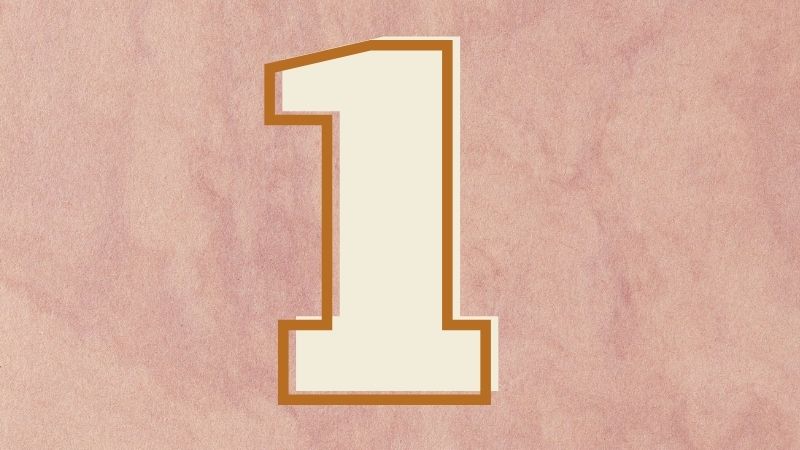 Meaning of Number 1
Meaning of Number 1
West: Number 1 is considered a masculine number, representing beginnings and creation. It embodies the energy of a warrior, providing a foundation for actions and change. On the positive side, it signifies connection, leadership, energy, courage, and new beginnings. Conversely, it can also indicate impatience, haste, and confrontational tendencies. Number 1 is most positive when associated with work.
See also: What does it mean when the hour and minute hands point to the same number? The meaning of 11:11 on the clock
2 Meaning of Number 2
East: In Chinese, the number two sounds like the words “definitely” and “easy.” Thus, it is considered lucky and represents balance and stability in feng shui. In the five elements theory, this number is associated with the Earth element, symbolizing stability and determination.
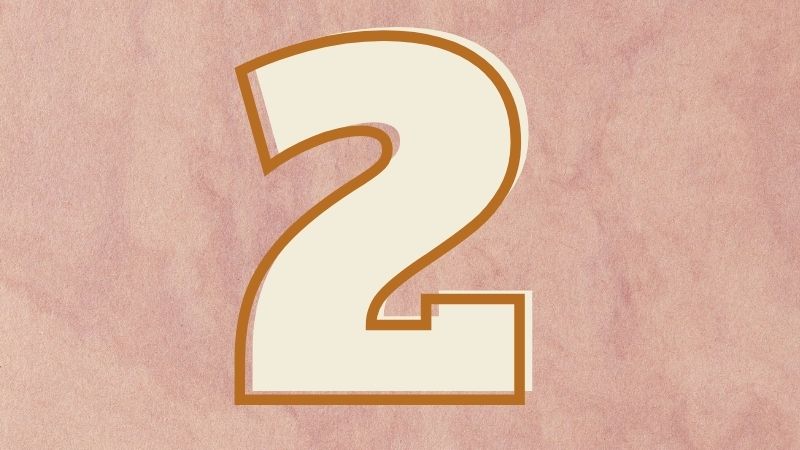 Meaning of Number 2
Meaning of Number 2
West: Number 2 is considered feminine and is associated with feelings, harmony, forgiveness, and understanding. On the positive side, it represents cooperation, caring, diplomacy, and friendliness. However, this “feminine” number can also imply shyness, exaggeration, or being too timid.
3 Meaning of Number 3
East: Number three sounds like the words “develop” or “give birth” in Chinese, representing life and abundance. It is considered a lucky number in feng shui as it is associated with the Wood element in the five elements theory, symbolizing creativity, sunset, and growth.
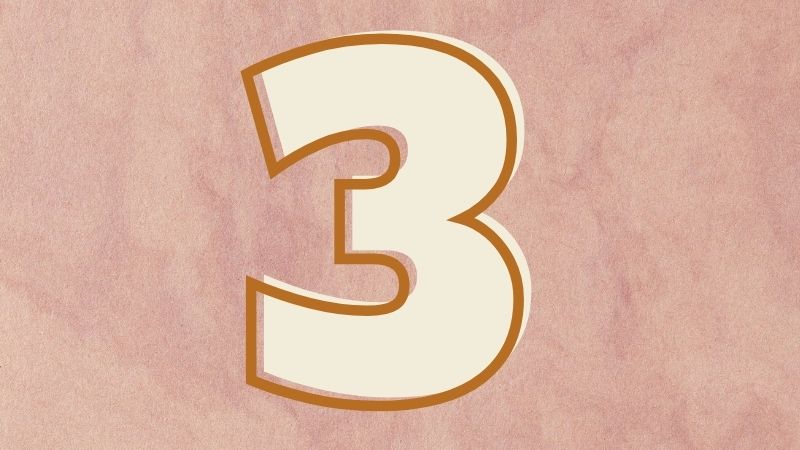 Meaning of Number 3
Meaning of Number 3
West: Number 3 is the creative child in Western numerology, representing happiness, enthusiasm, and sociability. Its positive attributes include imagination, emotional expression, and objectivity. On the flip side, it can also signify fantasy, selfishness, scattered energy, and gloominess. Therefore, discipline is necessary to attract the positive qualities of this number.
4 Meaning of Number 4
East: Number four is the first unlucky number in Eastern numerology as it sounds similar to the word “death” in Chinese. Thus, it is considered a symbol of misfortune and is avoided as much as possible. In the five elements theory, this number is linked to the Wood element, representing death and rebirth.
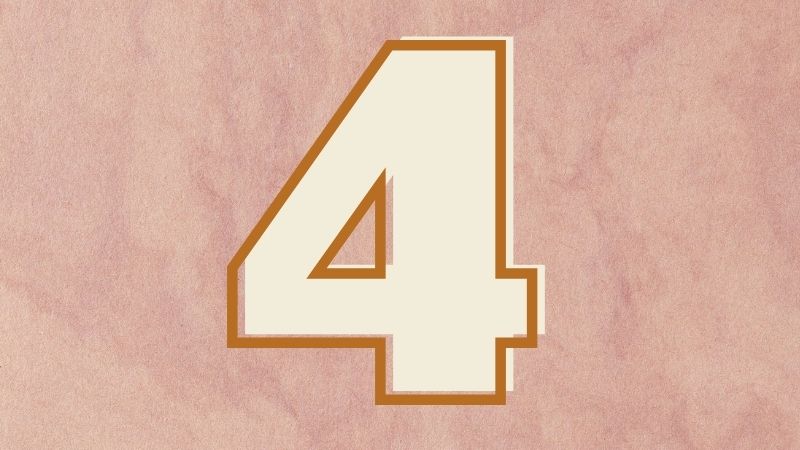 Meaning of Number 4
Meaning of Number 4
West: Number 4 represents a strong and stable foundation, hard work, and diligence. It is a powerful and stable number that does not tolerate frivolity. On the positive side, it signifies dependability, practicality, and determination. On the negative side, it can indicate rigidity, disappointment, and anger.
5 Meaning of Number 5
East: Number five is considered both lucky and unlucky in Eastern numerology. On the positive side, it is associated with the five elements in the five elements theory, representing a positive balance.
However, in some Chinese dialects, the number five sounds similar to the word “none,” giving it a negative connotation. But by combining it with another word (usually with a negative meaning), the overall meaning becomes positive. For example, combining five with “death” creates the phrase “no death.” In the five elements theory, this number is most strongly linked to the Earth element, symbolizing stability through balance.
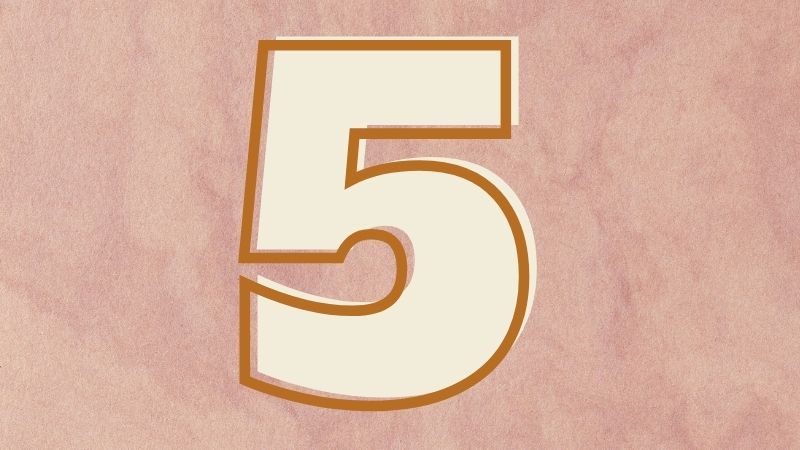 Meaning of Number 5
Meaning of Number 5
West: Number 5 is considered one of the strongest and most energetic numbers, especially in terms of social harmony. On the positive side, it represents originality, adaptability, adventure, freedom, and abundance. On the flip side, it can indicate a lack of focus, untrustworthiness, debauchery, and addiction.
6 Meaning of Number 6
East: Number six is considered lucky and auspicious as it sounds similar to the words “fortune,” “profit,” and “smooth” in Chinese. Interestingly, the number 666 is also considered lucky in Eastern numerology due to the lucky triple. In the five elements theory, number 6 is linked to the Metal element, symbolizing money and persuasion.
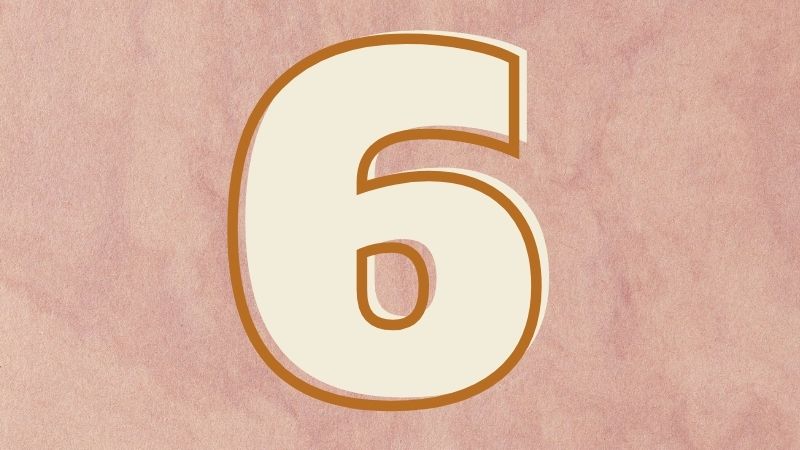 Meaning of Number 6
Meaning of Number 6
West: Number 6 represents support and sacrifice as it is the most harmonious number. It is like a person with a sincere heart, always willing to give back what they have received. Thus, the positive influences of number 6 include compassion, romance, and family. However, it can also signify selfishness, instability, and guilt.
7 Meaning of Number 7
East: This number is considered quite favorable as it sounds similar to words that convey unity and connection. Number 7 is also linked to the Metal element in the five elements theory, representing diversity in friendships and other relationships. However, in Vietnam, the number 7 is not considered very lucky due to its association with the word “that” (failure or setback) in Sino-Vietnamese.
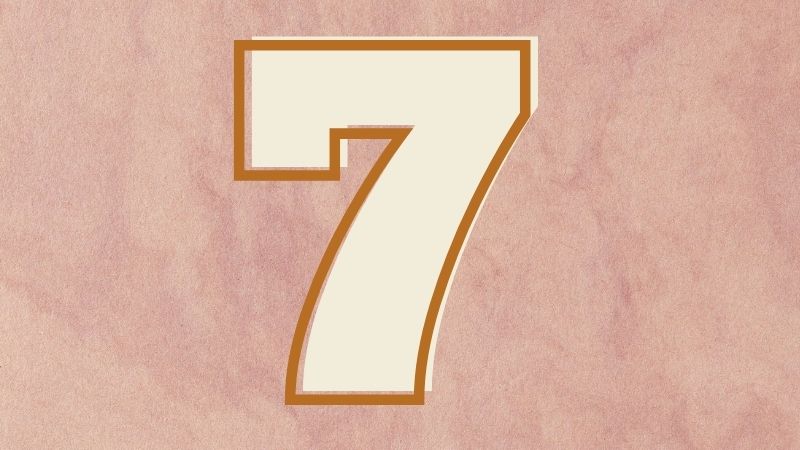 Meaning of Number 7
Meaning of Number 7
West: Number 7 represents the seeker of truth in Western numerology. It is a spiritual number, unconcerned with outward appearances, and drawn to exploring hidden mysteries. While it possesses qualities of high awareness, meditation, allure, and depth, it can also become possessive and easily retreat.
8 Meaning of Number 8
East: This number is considered the luckiest in Eastern numerology as it sounds like the word “fa” (prosperity or wealth). Thus, it is naturally considered a symbol of extreme good fortune and is commonly found in various aspects of life, from phone numbers to license plates and wedding dates.
In the five elements theory, number 8 is linked to the Earth element, symbolizing stability, determination, success, and financial goals.
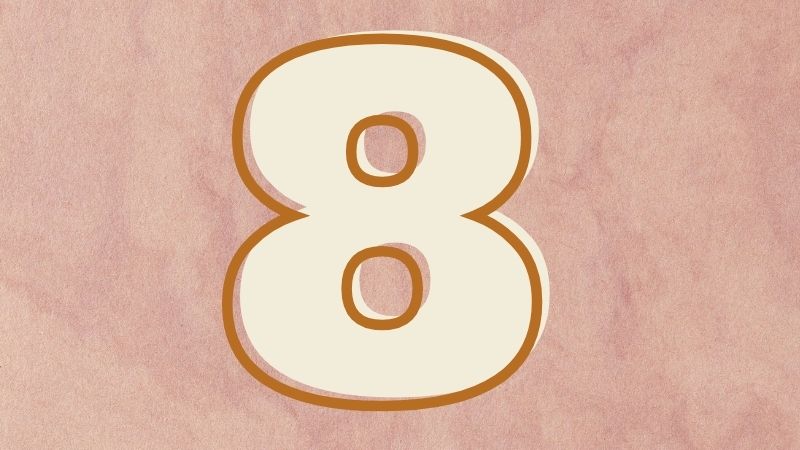 Meaning of Number 8
Meaning of Number 8
West: In Western numerology, number 8 represents balance. Similar to the East, it also symbolizes success and prosperity, but not without a price. To receive the blessings of number 8, one must live generously. On the positive side, it represents efficiency, power, strength, and respect. On the negative side, it can indicate greed, impatience, and dishonesty.
9 Meaning of Number 9
East: Number nine sounds like the words “long-lasting” and “forever” in Chinese, so it is considered a good number, symbolizing longevity. Traditionally, this number is also linked to the Emperor and is the only number associated with the Fire element, representing motivation and truth.
 Meaning of Number 9
Meaning of Number 9
West: This is the most worldly and complex number in Western numerology. Number 9 is like a thoughtful philosopher, full of empathy and compassion for others. On the positive side, it represents all of the above, plus artistry, humanity, and forgiveness. On the flip side, it can also indicate aloofness, arrogance, and a lack of romantic interest.
In addition, the number 13 is considered unlucky in the West due to its association with the number 4 (13 = 1+3 = 4). Thus, in the East, the number 13 is also considered unlucky.
Hopefully, through the sharing above, you now understand the cultural differences between East and West when it comes to the numerology of numbers. Regardless of the number, it can be interpreted in both positive and negative ways. It depends on the individual to harness the dominant energy that the number represents.






































